|
“I looked into my deepest wound and was dazzled by your glory.” – St. Augustine of Hippo (attributed) My favorite Gospel passage has always been Mark 3:2-5: “And they watched him, to see whether he would heal him on the sabbath, so that they might accuse him. And he said to the man who had the withered hand, ‘Come here.’ And he said to them, ‘Is it lawful on the sabbath to do good or to do harm, to save life or to kill?’ But they were silent. And he looked around at them with anger, grieved at their hardness of heart, and said to the man, ‘Stretch out your hand.’ He stretched it out, and his hand was restored.” Why did Jesus ask this man to stretch out his hand? Didn’t He know there were people around who would be able to see what was probably this man’s greatest insecurity? Didn’t He understand that this man had been judged and ridiculed enough throughout his life? That his deformed hand—and himself—was looked upon with disgust? Why would Jesus ask him to stretch it out, being all the more visible to the crowd around him? Jesus could have easily healed his hand while it was still hidden. Why cause more pain? Of course, Jesus was aware of the people around him who could see this man’s deformity. In this moment, however, the man with the withered hand probably felt like the only person in the room. What was happening between him and Jesus was the creation of an eternal bond, a divine exchange. This man wanted to be healed; who wouldn’t want the Divine Healer to rid us of our imperfections? But Christ asks the man to stretch out his hand so that he could participate in his healing. So that, in essence, he would tell Christ, “Here is my wound. I want to be healed.” So that it would be the work of Creator and created, an exchange of love, a sign of trust, a unification of suffering. Our redemption as Christians is comprised of many things, but the two I see most often are the participation with Christ in our healing by uniting our suffering to His on the Cross and the offering of our suffering for the benefit of another. In each way, we are actively engaging with the Divine Healer to find His strength through our pain and confidence in the midst of our flaws. When we invite God into our wounds, he transforms them. As St. Augustine said in the quote above, we can be dazzled by the glory we find there. As Catholics, we often hear in regards to suffering the phrase “offer it up.” I think this can sometimes belittle what is truly going on. When we sit before God and say “here are my wounds, here is my pain, hurt, and suffering—heal me,” something supernaturally transformative occurs. We are unifying our wounds to Christ’s wounds on the Cross and, wound for wound, are transforming our suffering into an act that is redemptive. When we participate with Christ in our own healing through suffering, Christ takes that free act of love and can use it to not only heal you, but to transform you to be more like Him and help others to also be transformed. How can actively participating in your healing transform others and lessen their suffering? Well, I think it is mostly a mystery. But allow me to unpack what I think occurs. Each amount of suffering offered up is like a quarter being placed in a jukebox. Once inserted, it enables the rest of the room to hear the music. The whole room is transformed. So too by offering your suffering to God, your fellow man can receive the sweetness of your pain and be converted by the beauty of your love freely given. Each contribution to this divine economy enhances the unity of the Mystical Body of Christ. The heavens move, the saints and the angels engage, and the supernatural world comes in contact with the natural, bridging the gap between heaven and earth just a little more. By inviting God into our hurt, giving our suffering to Him for the sake of others, and by showing it boldly like the man with the withered hand, we can participate with our Creator in becoming whole. This is the beauty of our faith—that our suffering is not our end, but rather the avenue by which we grow closer to Christ.
0 Comments
The Gospel reading for the Fifth Sunday of Lent is the familiar passage of the adulterous woman and her accusers. For as long as I can remember, this story has been bittersweet: it involves targeted harassment and shame, but also redemption and conversion. At this point in Lent, I don’t think there is a more needed, or relatable, lesson for us to be reminded of and to work on accepting. So, we’re five weeks into our Lenten journey. We’ve been skipping meat on Fridays and trying to live without whatever convenience or vice we decided to give up or purge from ourselves. Maybe we’re praying a little more than we normally would or are setting aside a few minutes to read a daily reflection from those little black books left in the back of our churches. But even with all of these intentional and humbling acts and motivations, we often still feel unworthy or like we’re faltering. Because of this, it’s possible to say that we don’t even need the Pharisees to judge us and bring us for judgement before God – we’re doing it enough for ourselves. To overcome this, I want us to reflect on three things: personal attitude, an open heart, and recognizing what’s in front of us. I think sometimes we’re too hard on ourselves. We allow our own harsh judgements to replace the only one that truly matters: God’s. Our own personal attitude can prevent us from accepting and sharing in the love and grace of God if we constantly feel that we are unworthy or failing. In the Gospel, when the adulterous woman is brought before Jesus, it does not say that she cried or tried to run. In the Gospel account, she lays at the feet of Jesus, lets Him clear her name and, ultimately, lets Him forgive her sins. Here’s a secret I’ve learned that the Gospel has been trying to tell us for a few thousand years now: Man is never worthy on his own, but has been made so by Christ, who offers redemption to all. If man were worthy, Christ would not have needed to redeem us after the Fall. So, we need to stop allowing our own negative perception of our efforts to prevent us from bearing or receiving the fruits of God’s grace and forgiveness. Why was Jesus’ reaction effective with the woman? Christ did not condone her sin, but met the woman in her sinful situation with love and mercy. Surely, such a transformation is not possible without a profound encounter with God’s mercy, an openness to change, and conversion of heart. The adulterous woman of this week’s Gospel is told by Jesus to “Go, and from now on do not sin any more” (John 8:11). As a result of her encounter with Jesus, her heart was changed, and she spent the rest of her life trying to grow closer to Him. We are called to do the same – during the Lenten season or any other time. If we are open to the love of God, it will fill us and strengthen us in our actions. With a faithful attitude and a heart that is open to change, all that is left is for us to encounter God. In order to do this, we must recognize what is in front of us. In the challenges, relationships, beauty of nature, art, and moments of prayer, God is entirely present and inviting us to share in it with Him. What a beautiful gift, and how accessible and truly joyful this is for us! I want to suggest that each of us take a few moments each day this week to reflect on how we’ve gone out of ourselves to be with or grow closer to God. Instead of grumbling about how much we miss Netflix or those amazing chocolate caramels, be proud of yourself for being so committed to your solidarity with Christ and His own suffering. Or, if you tripped up, instead of getting frustrated with yourself, reflect on the three Stations of the Cross in which Jesus falls. Absolute perfection is never what God expects or even desires – He’s just pleased to recognize a desire in us to do better. For more resources to accompany you along your Lenten journey, please click here. Question for Reflection: How can you grow closer to God in the final days of the Lenten season? Let’s face it: We live in a world that doesn’t really understand the meaning of love. We hear this word “love” thrown around a lot. There are any number of things we can say that we love in a day: our latest tv show binge, a favorite food, or place that we have travelled. We use this word with such inconsistency that it has begun to lose its meaning. How often do we succeed at recognizing and paying accolades to these “lesser loves” while failing to acknowledge the people and moments that actually deserve our recognition? All the while we are too easily forgetting Jesus, who is Love made flesh. The Gospel of John says, “No one has greater love than this, to lay down one’s life for one’s friends.” While the world proposes time and time again that we settle for lesser loves, the Gospel promises us that if we want to find our lives - if we want to find love - we must lay ourselves down. St. Maximilian Kolbe, whose feast we celebrate today, exhibited this in a way that was truly heroic. Not only did he defend and promulgate the faith during the height of World War II, but he, in a final act of heroic love, also laid down his life for a man randomly selected to die in a starvation chamber at Auschwitz. When St. Maximilian Kolbe was asked who he was by the Nazi guards, he simply responded: “I am a Catholic priest.” Maximillian Kolbe’s sacrifice is what the Church calls an act of “redemptive suffering” – suffering which allows and invites us to participate in Christ’s redeeming sacrifice and make manifest the love of God. The Catechism states: The cross is the unique sacrifice of Christ, the "one mediator between God and men". But because in his incarnate divine person he has in some way united himself to every man, "the possibility of being made partners, in a way known to God, in the paschal mystery" is offered to all men. He calls his disciples to "take up [their] cross and follow (him)",[Mt.16:24] for "Christ also suffered for (us), leaving (us) an example so that (we) should follow in his steps."[1Pet.2:21] In fact Jesus desires to associate with his redeeming sacrifice those who were to be its first beneficiaries. This is achieved supremely in the case of his mother, who was associated more intimately than any other person in the mystery of his redemptive suffering. Because St. Maximilian knew and loved the truth of the Gospels, he was found ministering to others and singing praises to God even as he was being starved to death. Maximilian used his suffering to show his fellow prisoners a God who loves us so much that he gave His life to us on the Cross. His own life provides a powerful example of someone who, even in the midst of horrific circumstances, has so much confidence in Christ that he is able to sing out, “For my yoke is easy, my burden light.” As Christians in the 21st century, it is our privilege to live lives of heroic love. Although most of us won’t be called to the sufferings of St. Maximilian Kolbe, we are ALL called to show and share love in a way that points others to the love of the Cross. St. Maximillian Kolbe, pray for us. In the small German village of Oberammergau, every ten years since 1634, roughly two thousand townspeople from all walks of life come together to stage the world’s most famous “Passion Play,” a dramatic re-enactment of Holy Week from Palm Sunday to the Resurrection. What that one town literally does every ten years, all Christians perform every Holy Week—and it is every bit as real. The liturgies of Holy Week teach us that we are not merely passive spectators but living participants and actors in the ongoing story of the “Paschal Mystery,” the saving life, death, and Resurrection of Jesus Christ. In our celebrations, we remember not just something that happened, but something that is happening, namely, the redemption of the world through the work Jesus Christ accomplished by His Cross and Resurrection. We are not playing someone else’s role in an entirely scripted fiction, but discovering our own part and contribution within a story that God is still writing. The basic structure of Christian existence, as a drama and extended experience of Holy Week, was one of the great lessons and insights shared throughout the life of Pope St. John Paul II, himself an actor and playwright. One of John Paul II’s biographers described the pope’s core vision of, “the cosmic drama of divine love being played out in the human quest for a true and pure love” (The End and the Beginning, 413). John Paul II received this vision primarily through his nourishment from Sacred Scripture. He interpreted life in light of the Gospel story of Jesus. The Passion Narrative in the Gospel of John, which some and dark, symbolizing the tension of love and sin that function almost like stage directions. I think we experience much of our life of discipleship as a drama, which is much different from experiencing all times and aspects of life as dramatic. The drama of life is often slow, ordinary, and unremarkable. There are long periods of waiting, working, growing, and hoping, punctuated by divine breakthroughs that remind us that He has been directing and giving commands all along. I find that I need Holy Week for its power to provide context for every frustrated hope, betrayal to those I love, loss of friends and family, and struggle to stand for what is true and just. On Holy Saturday, when things seem darkest, Jesus descends into those dark places of our world and our souls and shines a light, giving us the courage to hope that when Jesus says, “It is finished,” it actually means God is not done with us yet. Just when we think it’s over, the veil is torn and the curtain is raised—Christ is resurrected, and invites us not only on Easter Sunday, but anew each day, to live in the hope and joy of his victory over sin and death. Question for Reflection: What part or contribution is God calling you to in the ongoing story of salvation? There’s a fear that’s crippling our call to discipleship today: The fear of failure. Let me just say, this is hard as Americans. We love success. We’re taught from a young age to dream it, pursue it, seize it. We value success stories; we want to have a greater impact, to change the world, to maximize results. If we can achieve this in our faith and ministry, even better, right? Well, maybe. This might be the message written into the American narrative, but it’s not necessarily the Gospel. Our assumptions start sounding odd alongside the Beatitudes Jesus gave his followers, and his promise to the disciples foretelling persecution and rejection (Mt 10:16-23). Moreover, St. Paul claimed to be “content with weaknesses, insults, hardships, persecutions, and constraints, for the sake of Christ” (2 Cor 12:10), and even instructed the Thessalonians, “to aspire to live a tranquil life, to mind your own affairs, and to work with your own hands” (1 Thess 4:11). St. Paul’s suggestions are not exactly the keynote themes we have come to expect at most high-energy church conferences these days. Not surprisingly, we are simultaneously inclined to relish the failure of others. As much as we love the success of a celebrity, we equally revel when the mighty fall. When this happens to church leaders, we assume they are fakes, phonies, or just not very gifted. What doesn’t easily capture our imagination is the struggle that happens in between — the daily living and dying to self that occupies the majority of time and energy in pastoral ministry. Resolving petty conflicts, preparing talks for kids who probably don’t care, assisting the odd homeless woman who keeps knocking at the door — if only we could eliminate these distractions and move on to the real work of the Gospel! Meanwhile, we eat up sensationalized stories of success and failure in an escape from what is real, and ultimately, redemptive. Success and failure actually have less to do with the size or location of a church than what values and expectations shape the content of our discipleship. When we inadvertently conflate American pragmatic principles for Gospel virtues, we risk making disciples who measure their faithfulness by a standard of fruitfulness foreign to the Gospel, thus creating a ministry model unhealthy for our souls and our churches. Failure is not fun or romantic. It’s not something to rejoice, or even proof of our faithfulness. But it prepares the ground for fruitfulness. Fruitful soil is rich with dead and decaying stuff — our failures — that ultimately make us ready to plant the seed of the Kingdom of God. Recovering a “theology of failure,” as Pope Francis and others have spoken of, may be an important step for renewing our Catholic imaginations and acquiring the heart of Jesus. In order to “ready this soil” there are a couple of things we can do to change the way we think about and approach our daily ministries. Ministry is a Process, not a Product When we measure a ministry’s effectiveness, we often desire quantifiable results steadily increasing along a straight line on a graph. There’s definitely a place for this kind of analysis in running a church or ministry. But doing God’s work often follows a slow progression passing through unanticipated hills and valleys. We look at a person’s life and say, “Here’s where Jenny lost her job and had to cut back time and money at church, but here’s where her small group members provided babysitting and cooked meals.” The Church and her members rise and fall by the logic of the death and resurrection of Jesus, not by the laws of the stock market. Seek Balance, not Efficiency When we elevate efficiency above balance, disciple making resembles an assembly line that aims to produce predictable outcomes in the shortest amount of time. One corrective measure we can take is to remember to keep holy the Sabbath. Is our ministry bringing us peace of soul, or are we burned out and burdened with too much stuff at church? It’s possible we need to pursue more effective systems or strategies, but maybe what we really need is to recover rest in God’s redeeming love. Share Stories of Redemption In the gospels, the opposite of failure isn’t success, but redemption. Pay more attention to stories of redemption than stories of outward success. I love the story of Blessed Charles de Foucauld, a 20th century monk and martyr who lived amongst the Tuareg people of the Sahara Desert, sharing in their daily joys and struggles while representing the love of Jesus. His story and spirituality inspired others, but only years after his death (see his Prayer of Abandonment). As part of our task for the New Evangelization, I suggest we revisit what we call success and failure and begin pursuing ends not so focused on winning in a religious market, but embodying the example set by our savior, Jesus Christ. In some way, I think we come closest to understanding our ministry in light of Christ’s death and resurrection, i.e., when we are in the valleys our world labels “failure.” In these valleys, we throw ourselves upon the power of the Resurrection, knowing we cannot rise again on our own. On September 14th, we celebrate the feast day of the Exaltation of the Holy Cross. In the Gospel of John, Jesus tells us: “No one has greater love than this, to lay down one's life from one's friends” (John 15:13). That love is never more evident than our Lord's passion and death on the Cross. By that Holy Cross, we have been redeemed. Jesus Christ foretold his Passion to the Apostles, instituted the Eucharist at the Last Supper, and fulfilled God's plan for human salvation at Calvary upon that Holy Cross. This, my friends, is the greatest love ever known to humankind; by the grace of God, we will come to know the fullness of God's love in eternity. The promise of eternal salvation was made possible upon that Cross and we, as Catholics, are called to pick up our cross and follow Christ daily. This is a very hard thing to accomplish in today's world.
Jesus gave us the Holy Spirit at Pentecost to guide and strengthen us while following his commands. Paul tells us: “I have the strength for everything through him who empowers me” (Philippians 4:13). Jesus Christ empowers us with the Holy Spirit today just as he did with the Apostles. It is exactly that God-given power that we need in today’s often secular world to preach Christ crucified and “fight the good fight,” as St. Paul says. For if we profess Christ without recognizing and living his sacrifice on the Cross, we cannot be disciples of the Lord. Peter found that out when Jesus admonished him after the foretelling of his passion and death. I keep written on my desk calendar in my office and in my daily liturgical calendar, a Latin phrase that I think summarizes this idea: Lex orandi, Lex credendi, Lex vivendi - As we worship, So we believe, So we live. As we worship, so we believe, so we live. We must, through worship and prayer, “Love the Lord, your God, with all your heart, with all your soul, and with all your mind” (Matthew 22:37). We must believe all that Jesus has taught us, that he is our Lord and Savior, and that he suffered and died so that we may live. We must live out our faith in what Jesus has called us to do by spreading the good news and picking up our cross and following our Lord. This is not an easy task. It isn't easy being a Christian. Christ never said it would be easy. Being a Christian is not just being a member of a religion, it is our way of life. We live the faith Christ gave to us. When we struggle with this, when we get lazy or complacent with our prayer time, or if we need a reminder of just how much we are loved and what our calling is, we need only to gaze upon the Holy Cross. We can also reflect on the Prophet Isaiah, when he told us exactly what Christ has done for us and for the salvation of man: "Yet it was our pain that he bore, our sufferings he endured. We thought of him as stricken, struck down by God and afflicted, but he was pierced for our sins, crushed for our iniquity. He bore the punishment that makes us whole, by his wounds we were healed" (Isaiah 53:4-5). Brothers and sisters in Christ, we celebrate the Feast of the Exaltation of the Holy Cross.” Remember, worship, believe, and live in the glory of Christ crucified! Mark A. Straub Sr. is a member of the Knights of Columbus and president of the parish council of Our Lady of the Woods Parish in Woodhaven, Michigan. Lent is a time of reflecting on how to better ourselves in our relationships with our friends, our family, and our God, as well as a time to reach out to those less fortunate than us and show them the love of Christ. Most people probably do not think of this Lenten journey as a time of joy, but I do, for not only does Lent allow us to refocus ourselves on Christ, but it also calls us to share in the suffering of Christ.
During Lent we hear how Christ’s ministry unfolded and how people came to see him as the Son of God, our Savior and Redeemer. Christ’s journey was not easy. He endured pain and suffering for our sins in order that we might be reborn to new life through the sacrifice of his body and blood. St. Francis of Assisi wrote in “True and Perfect Joy” that the sick could be healed and the whole world could be evangelized, yet true joy comes in a mutual suffering with Christ on the cross. But how can suffering be joyful? Here on earth, in this life, the greatest and most intimate experience with Christ comes from our participation in the Eucharist. However, by also sharing in Christ’s suffering our relationship with him grows even more intimately. Indeed, taking part in Christ’s suffering allows us to more deeply share in the mystical Body of Christ. St. Paul wrote in Colossians 1:24, “Now I rejoice in my sufferings for your sake, and in my flesh I am filling up what is lacking in the afflictions of Christ on behalf of his body, which is the church.” During Lent each of us is called to share in Christ’s suffering in a unique way, whether that be sacrificing our usual daily donut, praying a rosary each day, or taking time to serve meals to the less fortunate. We need to recognize that in these sacrifices we share in some small way in Christ’s suffering, and thus are brought infinitely closer to him. How can this not bring us joy? Since Pope Francis recently released Evangelii Gaudium, “The Joy of the Gospel,” it seems prudent to also reflect on how we are called to live out his concept of joy this Lent. In the introduction of this exhortation, Pope Francis talks about rejoicing in the cross, “The Gospel, radiant with the glory of Christ’s cross, constantly invites us to rejoice” (Evangelii Gaudium, 5). The joy of which Pope Francis speaks, joy coming from the Gospel, is a joy that radiates from our love for Christ and our willingness to serve Him and others. It is through our ability and desire to follow the Lord’s commandments and our attempt to imitate Christ’s relationship with the Father that we are able to share in this joy. There could not be a better message this Lent as we try to refocus our faith and to better ourselves before our Lord! I have challenged myself this Lent to live out these two conceptions of joy each day: sharing in Christ’s suffering and my continued desire to serve Him. It is through each of these that we not only build up our own faith and discipline, but also have the ability to share it with others. We can bring Christ’s joy and peace to His people here on earth. Through this participation in Christ’s mission, we get a small glimpse of Christ’s infinite love for us. Pope Francis says it best as he reminds us of what joy should look like in our lives, “Joy adapts and changes, but it always endures, even as a flicker of light born of our personal certainty that, when everything is said and done, we are infinitely loved” (Evangelii Gaudium, 6). Nicholas Shields is a senior and the Grand Knight of the Knights of Columbus at The Catholic University of America I hope everyone has been enjoying the best season of the year! While secular Christmas music and decor can be nice (and luckily, because they’re ubiquitous), I am referring to the liturgical season of Advent. My friends believe Advent to be my favorite time of year because it typically needs considerable defense against the encroachment of the Christmas season, and I am happy to defend it. We need Advent. In my last post, I stated that if we don’t make time to consider consciously what vision we want to move towards, we’ll never move towards it. Advent is the season during which the Church encourages us to do just that.
So allow me to profess my love for this season. This profession might seem fairly theologically-minded, but I’m a firm believer that thoroughly theological reflection is often eminently practical - when we reflect on our vision, our subsequent actions reflect whether or not we truly envision something important. Looking forward to Christmas alone is the small-minded view of Advent. Yet somehow, it’s the view that even this well-catechized Catholic girl espoused until college – and I don’t think I was alone. Certainly, Christmas is one thing for which we’re preparing. Through our Christmas liturgies, we want to adequately remember and celebrate the miraculous divine self-emptying gift that is the Incarnation, and as always, the salvation that resulted from it. Most Advent calendars and other such aids help us towards this goal. However, when I listen to the Advent liturgies, I hear a different exhortation. The first Sunday alone, we heard of eternal justice, power and great glory, and were told, “Your redemption is at hand.” Even if I listen just to the Lord’s Prayer, the first half expresses our hope for the fulfillment of several things which the original Christmas enabled. These Scriptures point me toward the greater reality for which we are currently preparing: the eschaton, or the reign of God on earth. I’ve always been fascinated by the concept of the eschaton. The Kingdom of God is here already? But not yet? It is “at hand”? What does this language of faith mean? Simple. In one of his homilies on Ezekiel, Pope Gregory the Great compares the joy we have now to the joy in store: “The fire of love which begins to burn here on earth, flares up more fiercely with love of God when he who is loved is seen.” Already, we can welcome the fire of Christ’s love into our hearts. But not yet - that love gets inexpressibly better. Advent is a season of hope, and the true beauty of hope is that we believe one day it will be fulfilled. The greatness of Advent is that eventually it will become obsolete. Take a minute with me this Advent to think about our vision, the Kingdom of God; All injustices will be made right. We will be living with God, in a world without end. We will no longer get in our own way and separate ourselves from Him. We will glorify Him as we should. There will be no holds barred from His all-encompassing love. This is what we wait for. This is our hope. This is the reality of which Advent reminds us, provided we don’t skip past it. How can we be anything but joyful? Laura Berlage serves as an Echo Faith Formation Apprentice in the Diocese of Camden, NJ “I believe in dinosaurs!” tenaciously proclaimed the small third grade boy sitting in the front row. It seemed as though my conviction of teaching belief and our creed back-fired on me. My optimistic side gave me some consolation: “at least he believes in something.” And the third grader in me wanted to scream with him, “I love dinosaurs!” Throughout the next year I will be embarking on the adventure of teaching the Catholic faith to a bunch of third grade boys and girls. But the question that prompted the response of dinosaurs, “What do you believe?”, is not a question that ends with the completion of third grade religious education. It’s a question to be asked daily, to be wrestled with daily, and most importantly, to be lived daily.
Today, October 11th 2012, The Church begins her celebration of the Year of Faith. This is a faith that begins at baptism and brings us into the Triune God who is Love. In this faith we profess “the Father, who in the fullness of time sent his only Son for our salvation; Jesus Christ, who in the mystery of his death and resurrection redeemed the world; the Holy Spirit, who leads the Church across the centuries as we await the Lord’s glorious return" (Porta Fidei). The Holy Father is calling for us to CELEBRATE this faith! He is asking us to “rediscover the journey of faith so as to shed ever clearer light on the JOY and renewed enthusiasm of the encounter with Christ.” In short, he is asking us “what do you believe?” and “how do you live it?” Today, we also begin the renewal of our blog. As we, the Catholic Apostolate Center, celebrate this Year of Faith, we wish to share stories of lived belief through examples of discipleship and evangelization. We endeavor to be a place dedicated to reviving faith, rekindling charity, and forming apostles. It is a place to face the question “What do you believe?” Hopefully in our searching and questioning together we will be able to come up with an answer that goes beyond dinosaurs. Journey with us! Listen to our stories and share your own! Ask questions, post comments, share wisdom and resources. By virtue of our baptism, we are called to live our faith through the Christian charity. Journeying alongside one another, may we meaningfully celebrate this Year of Faith in order to shed light on the joy of our Catholic identity! Today I leave you with the question, “What do you believe?” Maybe it’s love, maybe it’s Christ, maybe it’s dinosaurs! St. Paul tells us to “examine everything carefully; hold fast to that which is good” (1 Thess 5:21). May our belief lead us to a deeper love of God, the Supreme Good! During this Year of Faith, may the love of Christ, rooted in belief, urge us on! (cf. 2 Cor 5:14) Pamela Tremblay is the Blog Editor for the Catholic Apostolate Center. |
Details
Archives
July 2024
Categories
All
|
About |
Media |
© COPYRIGHT 2024 | ALL RIGHTS RESERVED

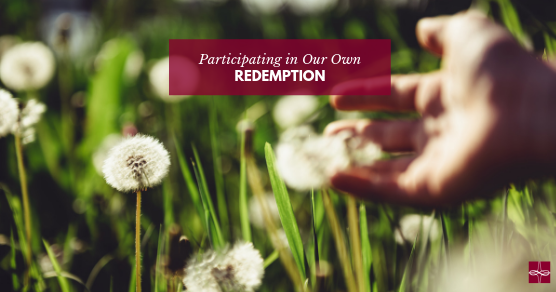

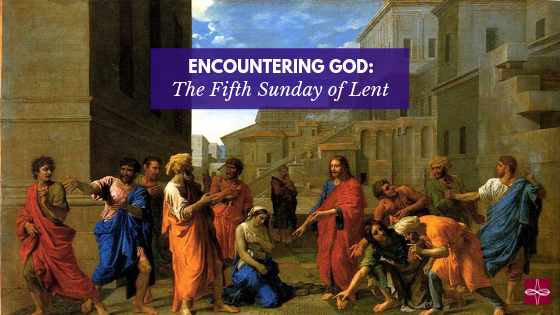
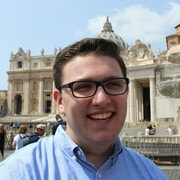
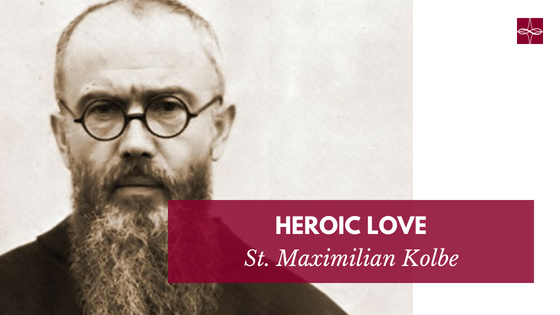

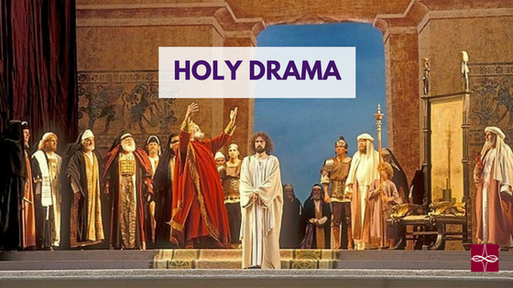

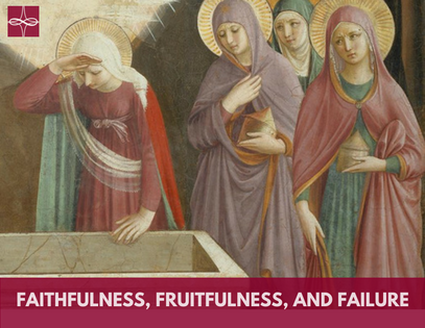

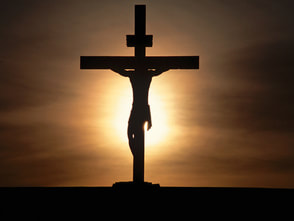
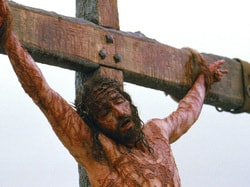

 RSS Feed
RSS Feed